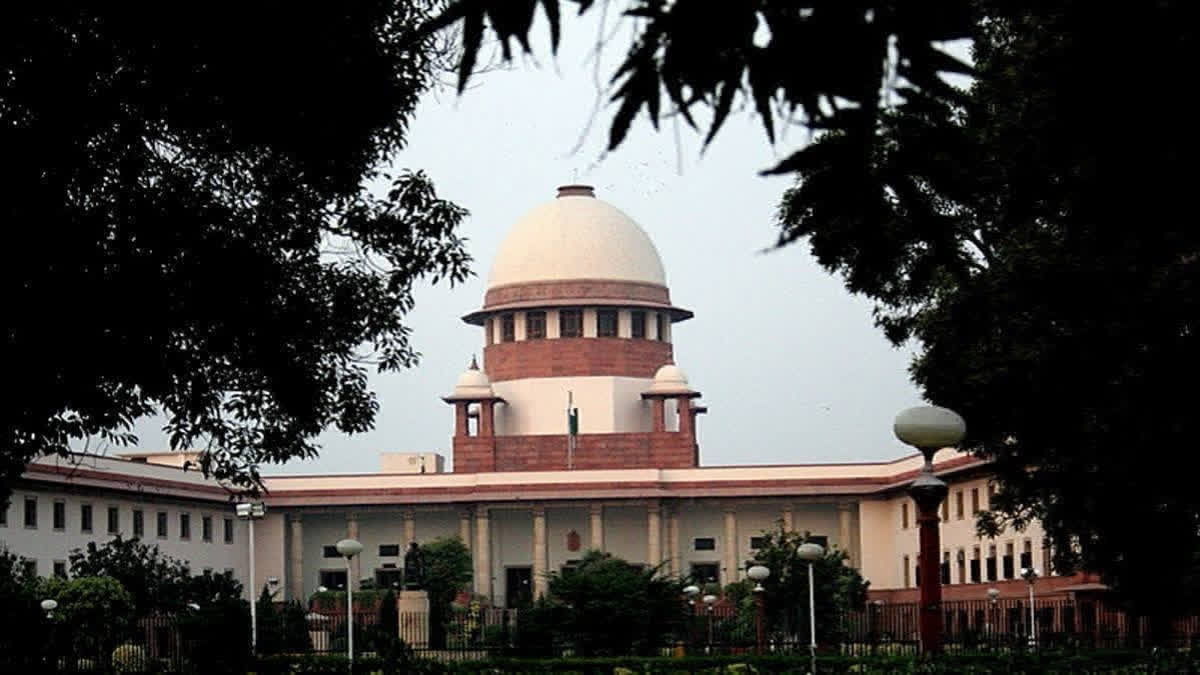New Delhi: In a significant verdict, the Supreme Court on Wednesday directed the Centre to formulate a scheme for cashless medical treatment to motor accident victims in the "golden hour" period, which is mandated under law, saying "injured person must receive the required medical treatment in the golden hour”, as “every human life is precious”.
A bench of Justices Abhay S Oka and Augustine George Masih said the scenario which emerges is that Section 162, of the Motor Vehicles Act, 1988, which incorporates the obligation on part of the central government to make a scheme for cashless treatment of victims of accidents during the golden hour and Section 164-B, which provides for the creation of motor vehicle accident fund, were brought on the statute book from 1st April 2022.
"However, the scheme, as contemplated by Sub-Section (2) of Section 162, has not seen the light of the day," said the bench, while stressing on the importance of providing immediate medical care during the critical period.
The top court ordered the government to provide by March 14 the scheme which could save numerous lives with prompt medical care to accident victims. "If the States are informed about the deficiencies, the victims can get information on the delay in processing the claim. We direct GIC to complete the work of setting up the portal at the earliest and report compliance to this Court about the work done by 14th March 2025," said the apex court.
The bench noted that as far as the portal to be developed by the General Insurance Council (GIC) is concerned, it is a work in progress, and added that GIC must complete the work at the earliest so that it becomes easier for the authorities to upload the documents on the portal. The bench said the portal can provide for informing the concerned states about the deficiencies in the documents.
The golden hour, defined under Section 2(12-A) of the Act, refers to a one-hour window following a traumatic injury under which a timely medical intervention will most likely prevent death.
Justice Oka, who authored the judgment on behalf of the bench, stressed that the scheme should be made in terms of sub-section (2) of Section 162 of the MV Act as expeditiously as possible and, in any event, by March 14, 2025, and made it clear that no further time shall be granted.
"As can be seen from the definition, the one hour following a traumatic injury suffered in a motor accident is the most crucial hour. In many cases, if required medical treatment is not provided within the golden hour, the injured may lose his life. Section 162 is crucial in the present scenario where motor accident cases are ever-increasing," said Justice Oka.
"The provision made in Section 162 for framing a scheme for providing cashless treatment in the golden hour seeks to uphold and protect the right to life guaranteed by Article 21 of the Constitution. Moreover, it is a statutory obligation of the Central Government to frame the scheme," said the bench.
The bench said the injured person must receive the required medical treatment in the golden hour, since it is essential for his survival, as every human life is precious. "Despite this, we find that the treatment needed in the golden hour is denied due to various reasons. The hospital authorities sometimes wait till the arrival of the police. They are always worried about the payment of charges for the treatment, which in a given case can be on the higher side," noted the bench.
The bench said the law provides the insurance companies carrying on general insurance business in India to provide for the treatment of road accident victims, including during golden hour in accordance with the scheme made under the MV Act.
A draft concept note was submitted by the government outlining a proposed scheme, which included a maximum treatment cost of Rs 1.5 lakh, and coverage for only seven days. Petitioner’s counsel contended it fell short of addressing the need for comprehensive care.
The GIC agreed to process the claims under the scheme for hit-and-run accidents based on seven documents: FIR copy, post mortem report/ injury report, copy of death certificate, a copy of the bank passbook/ bank statement of the claimants, copy of ID proof of the claimant, copy of ID proof of the victim, and any amount received due to cashless treatment as per Clause 22(2) of the scheme.
The apex court directed the GIC to process the claims on the basis of the documents mentioned above. "It is pointed out in the note that 921 claims were pending as of 31st July, 2024, as there were deficiencies in the documents submitted. GIC, in coordination with the concerned claim settlement officer, should contact the claimants and ensure that major deficiencies are cleared so that the claims can be processed", said the bench.
The bench directed that a copy of the scheme should be placed on record on or before March 21, along with an affidavit of the officer concerned of the Ministry of Road Transport and Highways explaining the manner of its implementation. The top court has listed the petition for directions for reporting compliance with its order on 24th March 2025.



